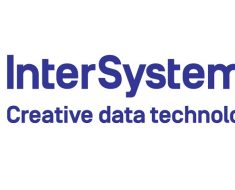
As the world of AI is rapidly developing the societal implications of Artificial General Intelligence (AGI) are both thrilling and concerning. AI is constantly advancing with loads of research and innovation. This suggests that customer chatbots like Siri or Alexa could soon have cognitive abilities similar to that of humans. AI is widely used worldwide, and the everyday use of machine assistants (Siri and Alexa), disease mapping and prediction tools, and other technologies demonstrate the increasing impact of AI on society. AGI can offer various benefits such as transforming industries, reducing inequalities, enhancing living conditions, and medical advancements; however, it also prompts multiple concerns, such as accountability and ethics. Striking a balance between AGI’s advantages and risks is imperative to allow society to benefit from its potential advantages as we further explore this field.
Artificial General Intelligence (AGI) differs from traditional Artificial Intelligence (AI), which is more commonly discussed in its scope and capability. AI is often designed for specific tasks and works with predefined information. An example of the limitations of its capabilities is Alpha Go’s tournament against Sedol Lee, one of the best chess players in the world. Alpha Go operates with prewritten parameters to react to specific moves. However, the robot stopped functioning when Sedol Lee made an unexpected, undefined move. In contrast, AGI possesses broader cognitive abilities closer to human intelligence. Most AI systems focus on solving particular problems, like diagnosing diseases or forecasting natural disasters, but they cannot adapt to a broader range of tasks. In contrast, AGI can adapt to various domains, enabling it to outperform humans in nearly any economically valuable work. This distinction from AI highlights AGI’s potential to revolutionize society.
To begin with, the integration of AGI into the medical field can transform healthcare in previously unimaginable ways. AGI’s flexibility and advanced capabilities allow for chances to improve healthcare for everyone. By crunching vast amounts of medical data and spotting unusual, tricky patterns, AGI has the potential to help doctors detect diseases quickly and earlier and create vaccines for them. They can also develop treatment plans that fit each patient perfectly since people have various physical conditions and needs. In addition, AGI can perfectly handle lengthy paperwork, giving doctors more time to focus on their patients. They can also resolve healthcare disparities by allowing more access to specialized medical expertise. Regardless of location or socioeconomic status, all individuals can receive high-quality care. AGI can also serve as an active tool for research on developing novel therapies, drugs, and treatment protocols. Overall, AGI’s integration promises a revolution in the healthcare field.
Moreover, access to AGI technology has the great potential to reduce disparities in education and employment opportunities, thereby allowing for better social equity. AGI-powered educational tools can provide personalized learning experiences tailored to students’ needs regardless of their socioeconomic background or location. Students can use AGI’s adaptive capabilities and receive adequate support and resources to enhance their academic performance. For populations that don’t have access to fancy educational tools, this is an opportunity to bridge learning gaps without spending vast amounts of money. In addition, AGI-driven job platforms and training programs can match individuals with employment opportunities based on their skills and experiences. This facilitates access to high-quality jobs and career advancement opportunities. AGI’s ability to automate routine tasks and streamline processes can also create industry efficiencies, leading to increased productivity and, thus, economic growth. By equipping individuals with the skills and resources they need to thrive in the digital economy, AGI has the potential to narrow the wealth gap and provide individuals with employment opportunities.
Despite its benefits, AGI’s emergence has many profound ethical dilemmas and challenges surrounding its development and regulation. One significant concern revolves around the security risks posed by the misuse of AGI technology. As AGI evolves and gains intelligence the chances of misalignment between its initial objectives and human desires increase. This could lead to unexpected consequences and ethical dilemmas. Moreover, regulating AGI raises complex moral questions, particularly if its intelligence becomes comparable to that of humans. There is a strong need for appropriate guidelines to govern its behavior and decision-making. The prospect of human augmentation through cyborg technologies enabled by AGI raises other ethical considerations regarding the augmentation of human capabilities beyond “natural limits.” Questions of consent, autonomy, equality, and accountability arise as society regulates the integration of AGI-based technologies.
In exploring AGI, we encounter a mix of advantages and drawbacks. AGI has the astonishing potential to revolutionize industries, elevate living standards, and improve the medical field significantly. It could mitigate current societal inequalities by expanding access to education and employment opportunities. However, alongside these promises come ethical concerns surrounding its implementation. Despite these challenges, by striking a good balance between its advantages and risk, responsibly utilizing the tools, and setting adequate regulations on its behavior, we can benefit from AGI. Overall, the positive impact AGI could have on society outweighs the risks.
In conclusion, Artificial General Intelligence (AGI) offers significant opportunities and challenges to society. While AGI has the potential to revolutionize industries, improve healthcare, and reduce social inequalities, ethical concerns surrounding its development and regulation make it controversial. By balancing AGI’s benefits and risks and implementing active guidelines for its ethical use, we can maximize its potential while mitigating potential drawbacks. As we handle this transformative era, proactive measures will be vital to maximize the positive impact of AGI on society.




